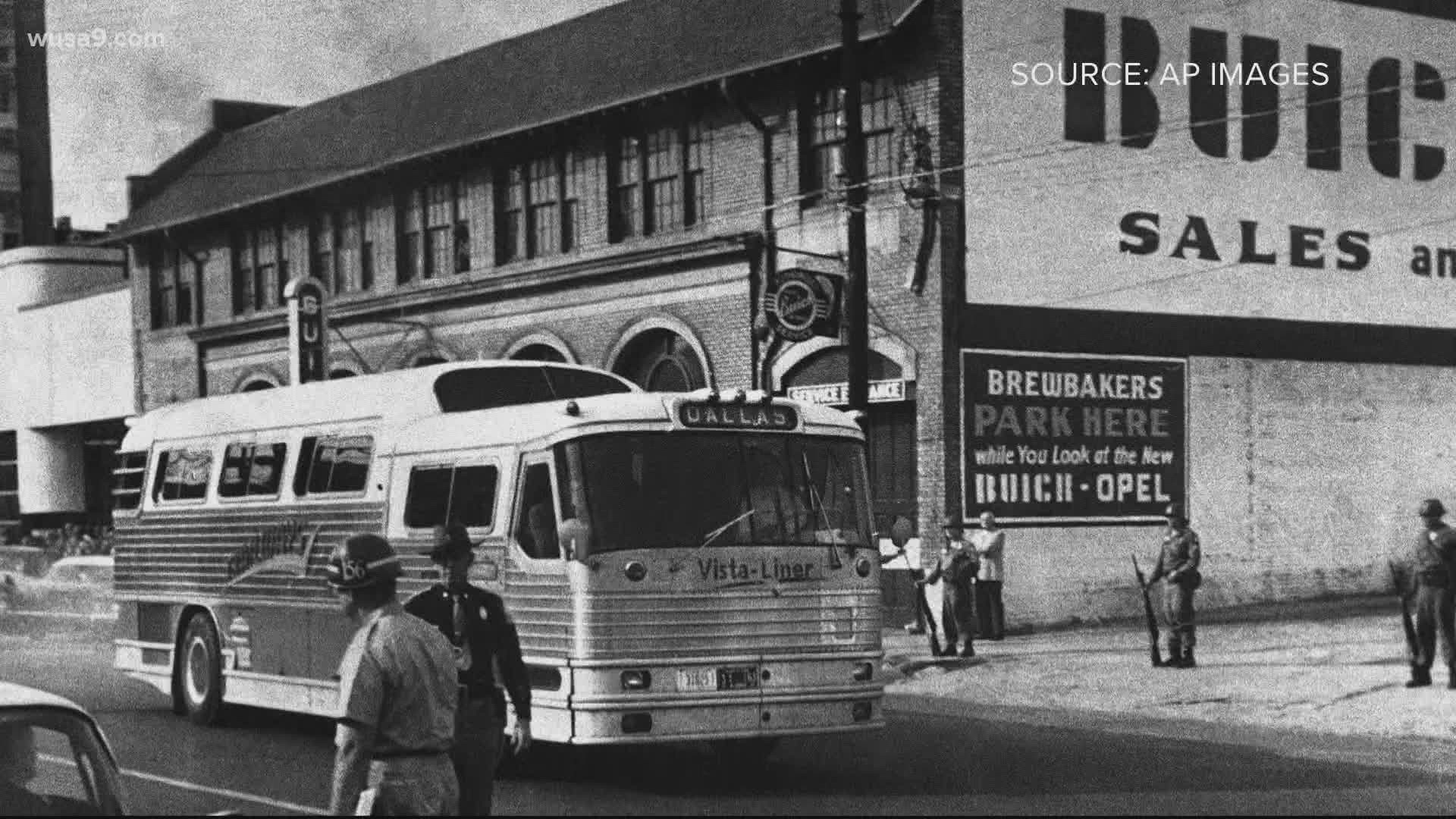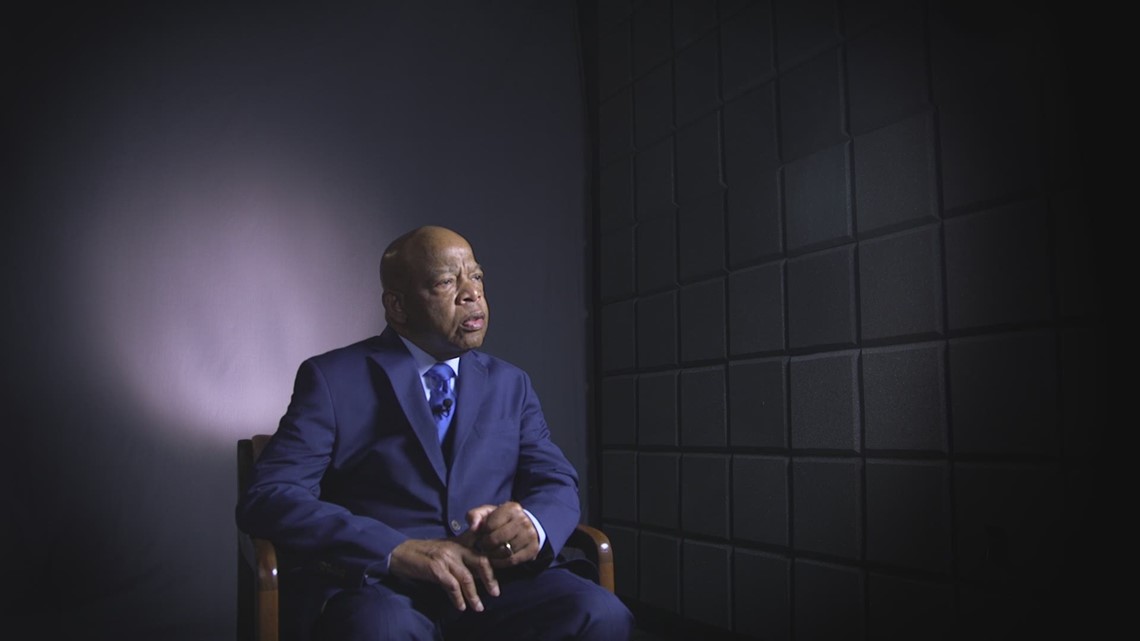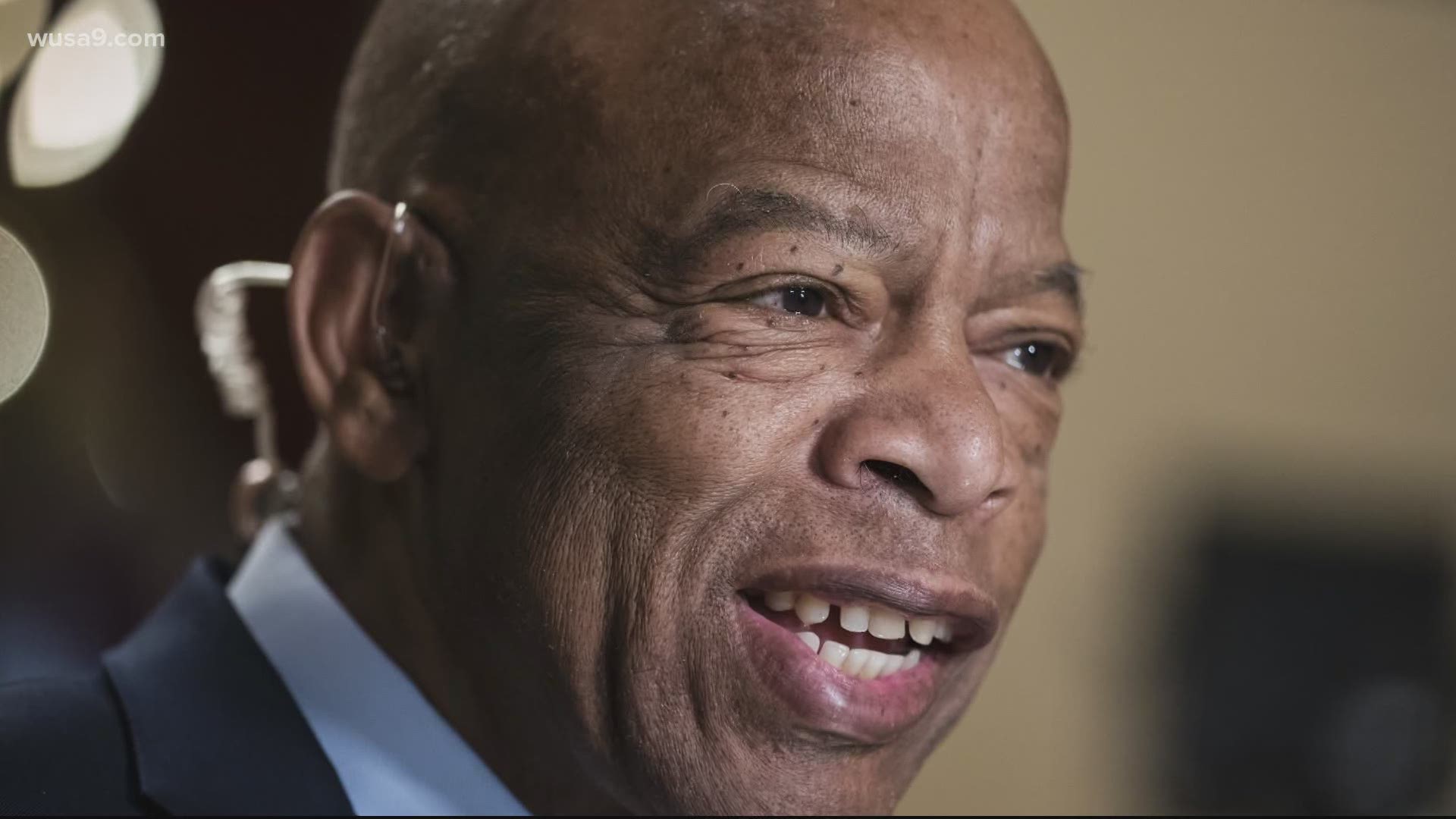WASHINGTON, D.C., USA — Many people will remember John Lewis as a civil rights icon, a congressman, and a leader.
To Jim Zwerg, Lewis was something much more.
"I never met anybody like John," Zwerg said. "I loved him like a brother. We loved each other like brothers.”
Lewis and Zwerg first met back in the early 1960s after Zwerg moved to Nashville. After seeing a Black friend deal with racism while at school in Wisconsin, Zwerg decided to move to Tennessee to experience what it would be like being in a minority.
Following his enrollment at Fisk University, Zwerg soon became part of the civil rights movement.
It began with a simple invite to a couple he recently met to see a movie. They couldn't join him, however, since they were Black and the theaters were segregated.
Zwerg soon joined demonstrations outside theaters calling for integration in the city. At one event, he met the man who organized people to stand in line outside: John Lewis.
"I never seen anybody or met anybody that seemed to have their life together like John did," Zwerg said. "It became so apparent to me the depth and the faith that John had and his absolute commitment to nonviolence.”
Zwerg and Lewis developed a close friendship over the next few months while organizing protests and demonstrations in Nashville.
In May of 1961, their focus shifted to Alabama for what would become known as "the Freedom Rides."
Lewis, Zwerg and others vowed to take interstate bus trips to test segregation in the South. The commitment to the cause came with an expectation that harm would come their way.
"They told us, 'What you’re about to do, you’ll either end up in jail, severely beaten or probably killed,'" Zwerg recalled. "I figured right out front there’s a very real possibility that I’ll get killed.”
Through it all, Zwerg remembered Lewis being a strong leader.
"You knew if you were going to stand with John on a bus platform, John wasn’t going to run. He was going to stand there with you," he said. "You just couldn’t let the segregationists feel that all they had to do is become violent enough and you run.”
Zwerg and Lewis ended up being seatmates during the ride from Birmingham to Montgomery. While the ride there was quiet, everything changed when the group arrived at the bus terminal in Alabama's capital.
Soon after getting off the bus, Zwerg remembered first seeing the trouble.
"Up around the driveways around the bus bays came this mob of humanity," he said. "They were screaming at the top of their lungs, 'Get 'em! Kill 'em!' You could see the weapons in their hands. They had pipes and hammers and bats and chains and bricks.”
With the angry crowd moving closer, Zwerg stood close to Lewis.
"We knew we were going to get beaten," he said. "John was right next to me on my left. I bowed my head and I prayed. I asked God to be with me and keep me nonviolent. I asked Him to forgive them. In that instant, I had the most incredible spiritual moment of my life. I felt at peace. I felt an incredible presence of love and I knew in that instant, whether I lived or died, it was going to be okay.”
Zwerg and Lewis were both left bloodied from the attack. However, they kept fighting.
Decades later, their friendship remained unbroken.
After learning of Lewis's death, Zwerg said he immediately felt heartbroken.
"It took the wind out of my sails," he said. "We had different colored moms, but by God, we were the same under the skin.”
With Lewis's life now being remembered by many people, Zwerg said his longtime friend would leave behind a lasting legacy.
"No one questioned the depth of his faith or commitment," he said. "Never give out. Never give in. Speak out. Speak up. Get active. That was John.”




